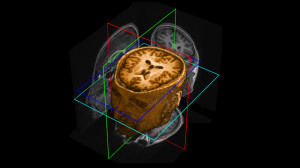Dementia and neuroscience research at Cambridge receives major funding boost
A major new collaboration between the Cognition and Brain Sciences Unit (CBU) and the University of Cambridge has been awarded £7m by the Medical Research Council to provide the most advanced brain scanning facilities for the next generation of dementia and neuroscience research. It is part of a £25m award to the University of Cambridge by the Medical Research Council’s Clinical Research Capabilities and Technologies Initiative, announced today by the Chancellor of the Exchequer.
Professor Susan Gathercole, Director of the MRC Cognition and Brain Sciences Unit says: “In a single step, this investment in ultra-high field human neuroimaging will allow us to break new ground in understanding the microstructure of the brain during health, disease and development. This award is simply transformational for Cambridge neuroscience.”
The award will provide one of the most powe rful brain scanning facilities in the world, supported by expertise across the CBU and University of Cambridge. Conventional MRI brain scanning has already revolutionised the study of the brain over the last twenty years. The new ultra-high field MRI ‘7T’ scanner is a great advance on existing technology, allowing researchers to study the structure and function of the human brain in much greater detail.
rful brain scanning facilities in the world, supported by expertise across the CBU and University of Cambridge. Conventional MRI brain scanning has already revolutionised the study of the brain over the last twenty years. The new ultra-high field MRI ‘7T’ scanner is a great advance on existing technology, allowing researchers to study the structure and function of the human brain in much greater detail.
The new scanner is dedicated to research into dementia, mental health and neuroscience. Researchers will be able to detect changes in the structure, function and chemistry that occur even before dementia starts and which respond to new treatments for dementia. This will make a major contribution to the UK Dementia Platform, a national initiative to join up dementia research across the country’s specialist centres and to work with companies developing new treatments in the fight against dementia.
The new scanner will also help neuroscientists understand how the brain represents and controls perception, memory and actions in the healthy population. CBU and University scientists will study how this brain systems change during the lifespan, in mental illness, and with genetic variation between people.

 MRC Cognition and Brain Sciences Unit
MRC Cognition and Brain Sciences Unit


